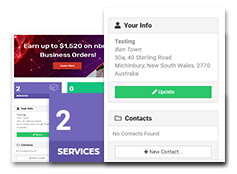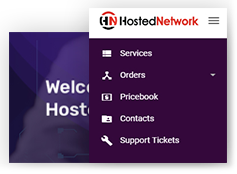Does your business run off a framework? Regardless of your MSP’s size, adapting a framework can help you achieve your goals and turn your business into a well oiled machine a lot faster.
Just like an operating system like Microsoft Windows that manages your computer, business frameworks are designed to ensure your business operations smoothly and efficiently, helping to avoid reinventing the wheel and bringing your MSPs vision to life faster.
If you’ve been thinking about implementing a business framework or even if this is the first time you’ve heard of the concept – here are a few reasons why you might want to consider implementing one.
1. Scale easily with improved and simpler processes
Lets face it, growing a business is hard. Business frameworks help take a lot of the legwork out of creating processes. From standardising reporting, tracking and even down to how you run meetings.
A framework helps you avoid the trial and error and not to mention the frustration that comes from it. All of which allows you to focus on your core business of supporting your customers and helping you to avoid getting stuck in the weeds.
2. Structure your business for the greater good
While implementing new systems and strategies can be difficult especially when you’re comfortable with the old ways, you’ll eventually realise that changing your business’ overall structure is the pivotal step into becoming better.
Trust starts within. You can’t tell your customers that you can be their “trusted advisor” if you’re not even confident enough about your team and your internal operations. Identify which areas need to be improved and work on them one by one. Only then can you function better holistically.
3. Setting defined short and long term goals and vision (And keeping track)
Where do you see your MSP in a year or 5 years from now? Do you know where you actually want to be? And what’s more – do you know how to get there?
If you do – then great! But what about your team? Are they clear on where you’re going and how you’re going to get there?
A business framework helps you plan out exactly why you exist, what your goals are and ensures you and everyone around you knows how you’re going to get there. Sounds simple in theory but many MSPs struggle to convey to their team the vision in the owner’s mind which results in lower profitability and potential moral issues.
What’s more is a good business framework provides you with a foundation to track and measure your progress to keep you and your team on the right page.
Further Reading: Checking your MSP’s Vision Statement: Are You Still Walking in the Same Direction?
4. Making sure that you have the right people in the right seats
As Jim Collins talks about in his book “From Good to Great”. Ask yourself – if your business was a bus, do you have the right team members on it and are they in the right seat?
What Jim is trying to say in his book is that far too often businesses tend to either have the wrong person within the company entirely, or that they are simply in the wrong role.
A good framework will help you with the fundamentals of the roles and responsibilities of each of your team members as well as the metrics to track the success of each role – ensuring that they deliver the results that the business needs in driving towards the company’s vision.
5. You can identify weaknesses and bottlenecks in your business systems and processes
A clear framework allows you to identify issues in your systems and processes. Frameworks allow you to do this by producing repeatable and measurable outcomes that you can then review in further detail. Ideally these outcomes and metrics are automatically collected but when you’re just starting out these can be manually reported on.
This also expands outside of just systems and processes and allows you to identify potential under performing and exceptional staff members.
6. Maintain consistent quality and save time/money
When a central framework is followed by everyone in the team, then every customer will experience the same fantastic experience and every one in the team will be measured and reviewed objectively.
Over and above this, providing a consistent experience means that you can more effectively track when things fall outside of the norm, saving you time and money (think identifying issues early on instead of scratching your head and spending days trying to figure something out).
Conclusion
At the end of the day we’ve all got our way of doing things but the standard areas of business success are nothing new – so why reinvent the wheel?
We recently covered the topic of business frameworks as part of our MSP’s in Conversation series where we had industry leader of the EoS Framework – Dan Williams and Aaron Jacobs from RODIN Business Solutions discuss the benefits and challenges of implementing business frameworks within MSPs – Check it out HERE.
 Contact us
Contact us  Partner Login
Partner Login  Service Status
Service Status 


 November 11, 2021
November 11, 2021
 Ben Town
Ben Town
 3 mins
3 mins